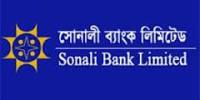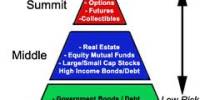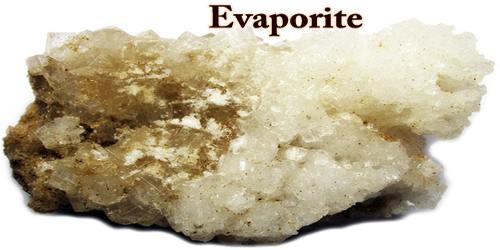General Banking Services:
Al arafah islami bank Banking services comprise three regular types of operations related to acceptance of deposits in the different customers accounts as mentioned earlier, as well as, different transactional services to the customers, safe-keeping of personal valuables and securities, collection of bills, agency services etc.
Procedures
1. Issuance of token, Maintenance of subsidiary day Book, writing of day Book, balancing of Ledger.
2. Opening of A/c Mudaraba Savings A/cs Mudaraba term deposit A/c Al‑Wadiah current A/cs, Mudaraba Hajj saving A/cs, writing of A/c opening registers and issuance of pass book and cheque Book.
3. Maintenance of current A/c ledgers, deposit ledger and TDR ledger and operation of computer.
4. Writing of transfer scroll, statement of current A/c and deposit A/c and Hajj deposit A/c pass book.
5. Bills: Outward & inward Bills (OBC & IBC) and clearing.
6. Remittance: Issuance and payment of DD, TT, PO etc.
7. Writing of clean cash Book and posting of General Ledger and checking of computer final sheets with General Ledger.
8. Maintenance of charges, suspense and sundry deposit A/c, maintenance of dead stock and stationery articles registers.
9. Schedule Telegram and preparation of General ledger A/c statement.
- Establishment: Preparation of Salary, pay sheet, LPC, maintenance leave register, personal files and method of correspondence and payment of income tax.
- General Characteristics of Deposit Account:
Bank receives deposit by different accounts. Those are two types:
i) Al Wadiah -‑‑ Client A/C is conducted under Al ‑ Wadiah system
ii) Mudaraba Mode ‑‑‑ Client‑ Sahib Al Mal
Bank‑ Mudarib
Under this arrangement ‑ profit distribution under agreed ratio and loss (if any) will be borne by Sahib Al Mal
Under Mudaraba mode there are many accounts as under:
i) MSA – Mudaraba Savings Account
ii) MHSA ‑ Mudaraba Hajj Savings Account
iii) MSB ‑ Mudaraba Savings Bond
iv) MSS ‑ Mudaraba Special Scheme
v) MTDR ‑ Mudaraba Term Deposit Account
vi) MMPDS ‑ Mudaraba Monthly Profit Deposit Scheme
vii) MMS ‑ Mudaraba Mahor Savings A/C
viii) MSNA ‑ Mudaraba Short Notice A/C
- Al‑Wadiah Current A/C (AWCA)
The word Al-Wadia means ‘Trusteeship’. In this case banks act as trustee for its customers. Under the Al-Wadia principle the bank is given an authorization by depositors to use the fund at the bank’s own risk.
AWCA accounts are unproductive in nature, is nature, as banks lovable investment fund is concerned sufficient fund has to be kept in liquid from, as current deposits are demands liabilities. Thus huge portion of his fund becomes on performing for this reason banks do not pay any of AWCA – CD account holder. Businessmen and companies are the customers of this product.
- Mudaraba Saving Account (MSA)
The word ‘Mudaraba’ originates from the word ‘Mudarib’ and means ‘The Manager’ of the fund. The bank in this case acts as a manager of customers’ funds. The depositors on the other hand are known as ‘Sahib-Al-Mal’ meaning the owner of the fund. Deposits accepted on savings under the Profit and Loss sharing agreement is invested by the bank on its own risk. Customers give authorization to the bank to invest funds and share profit or loss on agreed proportions. Account holders of this type of account are required to maintain a minimum balance in the account.
As per Bangladesh bank instruction 90% of SB deposit are treated as time liability and 10% of it as demand liability. In IBL there is a restriction about drawing money from SB account but any time holder may draw money of any amount with prior motive. General house holder and individuals are the clients of this account
Mudaraba Term Deposit
The total deposit of al arafah islami bank was tk. 23,009.13 million at 31st December 2007 as against tk. 16,775.33 million at 31st December 2006 recording growth of 37.16% of which th. 685.50 million was bank deposit and general deposit was 22,323.63 million taka. The present strategy is to increase the deposit base through maintaining competitive a profit rates and having low cost of funds to ensure a better spread with an average return on investment.
Term deposit is maintained following the mudaraba principle for 3 months, 6months, 12 months, 24 months. Mudaraba Term Deposit Receipt is privided on this account. Any amount, which is mulltiple of tk. 10000, could be kept on this account.
Fixed deposits are of two kinds midterm deposit (MTD) and term deposit (TD) instrument whose maturity period is within one year are known as MTD and those above one year are considered as term deposit. Calculation of profit TDR and provisioning regarding this is quite complicated issue. Profit is calculation at each maturity date and provision is made on that. Also at the month and provision of profit is made.
Mudaraba Double Benefit Scheme
Mudaraba Double Benefit Scheme is also a newly introduced deposit scheme of AAIBL. The scheme was introduced in March 2007 that was observed as ”Deposit Collection Month” by the bank. The main theme of the scheme is that a depositor will get double of his or her deposited amount after six years. The scheme is operated in mudaraba principle.
Rate of the account:
Savings – 4%
SND Short Notice Deposit – 3.5%
FDR -9%
Double benefits -11.25%
Others all types of Deposit – 10.25%
- Mudaraba saving Account (MSNA) A/C
MSA account can be treated can be treated as semi term deposit. Deposit should be kept in these accounts for at least seven days to get interest of MSA accounts is less then SB accounts. (5.5%) Generally profit but may increase to 6% or more depending on the fund Checkbook is issued them but frequent use of checkbook is discouraged. Governmentally organization big corporate house and banks are generally the clients of this account.
- Account Opening Eligibility
- Account Closing:
- Persons over 18 years (except some restricted persons),b) Account of Club, c) Association, d) Agent, e) Govt., f) Semi Govt g) Organization, h) Liquidators, i) Minor, j) Married Women ,k) Pordanshil Women, l) Illiterate Persons.
First a customer has to submit an application with his/her signature mentioning that he/she wants to close his/her A/C. Then the signature will be verified by the officer. Customer has to certify by different department (Advance, Foreign Exchange department) of Bank that he/she has no liabilities to the Bank. After that the Customer’s A/C is debited and then Bank issue a Pay Order in the name of A/C holder.
- General Practice at Regarding Accounts, in Account Opening Register:
After fulfilling all the requirements for opening account necessary entries are given in the account opening register. There are several registers for several accounts as MSA, AWCA, TDR etc. Date of opening name of the account holder, nature of business, address, initial deposit, and introduction various information are recorded in that register. New accounts number is given from the list of new numbers provided by the computer department.
The principles of calculation and distribution of profit to Mudaraba Depositors generally followed by different Islami Banks are as under:
- Mudaraba Depositors share income derived from investment activities i.e. from the use of fund.
- Mudaraba Depositors do not share any income derived from miscellaneous banking services where the use of fund is not involved, such as commission, exchange, service charges and other fees realized by the Bank.
- Profit and losses resulting from the use of funds are separately maintained in the accounts from other income and expenditure relating to other activities and services offered by the Bank.
- Mudaraba Deposits get priority in the matters of investment over Bank’s equity and other cost free funds.
- Mudaraba Depositors do not share any income derived from investing Bank’s equity and other cost free fund.
- The amount of the statutory cash reserve and the liquidity reserve, which are required to be maintained with Bangladesh Bank, is deducted from the aggregate balance of Mudaraba Deposits to arrive at the net balance of profit sharing deposit.
- The gross income derived from investments during the accounting year is, at first, allocated to Mudaraba Deposits and cost-free-funds according to their proportion in the total investment.
- Islami Bank Bangladesh Ltd, at present, applies the following weightages to Mudaraba Deposits:
| Sl. no. | Particulars of Deposits | Weightages |
| 1. | Mudaraba Hajj Savings A/C : 11 to 12 years | 1.35 |
| 2. | Mudaraba Hajj Savings A/C : Upto 10 years | 1.30 |
| 3. | Mudaraba Special Savings (Pension) A/C (MSS): 10 years | 1.30 |
| 4. | Mudaraba Special Savings (Pension) A/C (MSS) : 5 years | 1.10 |
| 5. | Mudaraba Muhur Savings Account (MMSA) : 10 years | 1.30 |
| 6. | Mudaraba Muhur Savings Account (MMSA) : 5 years | 1.10 |
| 7. | Mudaraba Savings Bond (MSB) : 8 years | 1.25 |
| 8. | Mudaraba Savings Bond (MSB) : 5 years | 1.10 |
| 9 | Mudaraba Monthly Profit Deposit A/C (MMPDS) | 1.20 |
| 10. | Mudaraba Term Deposit Account (MTDA) : 36 months | 1.00 |
| 11. | Mudaraba Term Deposit Account (MTDA) : 24 months | 0.98 |
| 12. | Mudaraba Term Deposit Account (MTDA) : 12 months | 0.96 |
| 13. | Mudaraba Term Deposit Account (MTDA) : 6 months | 0.92 |
| 14. | Mudaraba Term Deposit Account (MTDA) : 3 months | 0.88 |
| 15. | Mudaraba Savings A/C (MSA) | 0.75 |
| 16. | Mudaraba Foreign Currency Deposit A/C (MFCDA) | 0.75 |
| 17. | Mudaraba Special Notice A/C | 0.55 |
Source: Diary 2005, AIBL, Page 13-14.
- Differential rates of weightages have been assigned to Mudaraba Depositors on account of the following factors:
a) Period of Deposits
The longer the period of deposit, the greater the risk they bear with regard to fluctuation of the rates of profit and erosion of the value of deposit due to inflation. The Term Depositors have also to forgo profit in case of premature encashment.
b) Banking Facilities
The Term Depositors do not enjoy any banking facility such as, operating accounts by cheques, transfer of account from one branch to another, collection of cheques and other instruments, executing standing instructions through their accounts and so on and so forth. On the other hand, the PLS Savings Depositors have freedom to get the above services through their accounts. PLS Short Notice Depositors enjoy still greater facilities in regard to making deposits in and withdrawal from their accounts.
c) The pattern of Rates of Return on various types of cost bearing deposits of the traditionalBanks in our Money Market have also an important bearing on allocation of weightage a different rates.
d) In consideration of the above factors, full weightage has been assigned to our Mudaraba Deposits of 36 months and relatively lower Weightages have been given to Mudaraba Deposits of lower periods, Mudaraba Savings and Mudaraba Short Notice Deposits.
- Local Remittance
AIBL sells and purchases PO, DD and TT to its customers only. It does not offer remittance service frequently to those other then its customer.
- Pay Order (PO) :
Pay Order an instrument, which is used to remit money with in a city thorough banking channel the instruments are generally safe as most of them are crossed.
- Issuing of a pay order (PO) :
A customer can purchase pay order in different ways:
By Cash A/C………………………………………………………………….. Dr
By account Client A/C ……………………………………………………. Dr
By transfer head office/other departments client A/C …………. Dr
Bills Payable (PO) A/C ……………………………………………………Cr
Income A/C commission on Remittance ……………………………Cr
Demand Draft (DD)
Demand Draft is many popular instruments for remitting money from one corners of country another. The instrument is basically used for transfer and payment. Difference between pay order and demand draft is in terms of place only PO is used for remittance money with in the city where as DD is used for within the country DD too, constitutes current liability on the part of a bank. At AIBL DD is not sold to people other than its customer.
- Telegraphic Transfer (TT)
Telegraph transfer in one of the fastest means of transferring money from one branch to another or from one to another. The TT issuing bank instructs its counterpart by tested telex message regarding remittance of money. No instrument is given for TT both parties should have account, as money is transferred.
- Clearing
As far safety is concerned customers get crossed check for the transaction. As we know crossed check cannot be encased from the counter rather it has though been collected through banking channel i.e. clearing. A client of AIBI received a check of another bank, which is located with in the clearing range deposit, the checks in account at AIBL New AIBL will not the money until the check is honored.
- Transfer Delivery
Transfer delivery is a cheque collection procedure among internal branches within the Clearing House. When a cheque is of a Branch Office is deposited to another Branch Office, then collecting branch on that date sends that cheque to their, Local Office, sends that cheque to that respective branch and takes necessary action for honoring cheque.
If the cheque is dishonored then authorized branch send the cheque to the local office and Local Office send that cheque to the collecting branch on the collecting date.
Here Clearing house function is not required because transactions occur among the same branch of same Bank within the Clearing House.
- Cheque is of a same branch of AIBL
If the cheque is of a Branch Office of a Bank (within the Clearing House of same city) then the collection branch send the cheque to the authorized branch/drawn on branch and issues an IBCA to the collecting branch.
On the other hand, if the cheque is of another Bank (outside of Clearing House to another city) then cheque collecting branch will find out whether any branch office of the collecting branch situated near to Authorized branch.
If yes, then cheque collecting branch will send the cheque to the branch office near Authorized branch, that branch (near Authorized branch) office collect the cheque from drawn on branch and issues an IBCA.
If not, then the collecting branch will send that cheque to the Authorized branch, after that Authorized branch will send a DD with mentioning the name of their branch office near collecting branch and collecting branch will collect that cheque thereby.
- Debit Transaction
Incase of responding transactions, say a customer wants to draw any sort of financial instrument of a branch to some other place at his/her convenient then authorized branch of that financial instrument issues an IBCA to that “Drawn On” branch. Here “Drawn On” branch of Responding Branch pays on behalf of Originating Branch and record all transactions in the Debit side of the IBG A/C.
- Credit Transaction
Cheques are deposited for payment in a branch that branch sends those cheques or other financial instrument to Clearing House for clearing. After clearing those cheques or financial instruments collecting branch makes payment against those financial instruments, before paying this branch as Originating Branch sends an IBDA to the Authorized Branch/Responding BranchIf those financial instruments are dishonored then respective parties are not paid and authorized Branch/Responding Branch again sends an IBDA to the Originating Branch.
Cash
Cash section demonstrates liquidity strength of a bank. It also sensitive as it deals with liquid money. Maximum concentration is given while working on this section. As far as safety is concerned specials precaution is also taken. Tense situation prevail if there is any imbalance in the case.
- Vault
All cash instruments (PO, DD, Check) and other valuables are kept in the vault is insured up to Tk. 4 core with a local insurance company. If cash stock goes beyond its limit of Tk. 4 core the excess money is transferred to Bangladesh bank if there is shortage of cash during transaction period money is transferred to drawn from the central bank. There are three keys of the vault, which are given to three seniors most officers. Daily an estimated amount of cash is brought out from the vault for transaction purpose. No more than Tk. 4 core brought at once from the vault on a single day.
- Teller Customers Relationship
In a bank a person who delivers and receives cash from the cash counter is known as teller a customer meets most of the time in a bank with a taller on the counter.
So teller should hold certain quality should be friendly, provided prompt service and be accurate in his task.
- Cash Packing and Handling
Cash packing and handling needs a lot of care as any mistake may lead to disaster. Packing after banking hour when the countries closed cash is packed according to denomination. Notes are counted several times and packed in bundle Stetted and stumped with initial.
- Evening Banking:
After the banking hour the cash counter is closed. But sometimes customers come to draw or deposit money after the service hour. However their money is received or paid recorded in the next daybook. This is known as evening.
Mudaraba Lakhpoti Deposit Scheme (LDS)
Mudaraba Lakhpoti Deposit Scheme is a newly introduced deposit scheme of AAIBL. The scheme is introduced in March 2007 that was observed as ”Deposit Collection Month” by the bank. The deposit scheme has already got huge popularity. The main theme of the scheme is that a depositor will get tk.1 Lakh at maturity. The scheme is operated in mudaraba principle. Monthly installment table of the scheme for different duration is shown below.
Mudaraba Lakhpoti Deposit Scheme (LDS)
| Duration (In Years) | Monthly installment (In Tk) | Amount payable at maturity (In Tk) |
| 3 | 2375 | 1 Lakh |
| 5 | 1275 | 1 Lakh |
| 8 | 670 | 1 Lakh |
| 10 | 460 | 1 Lakh |
| 12 | 335 | 1 Lakh |
Mudaraba Millionaire Deposit Schemer (MDS)
Mudaraba Millionaire Deposit Scheme is also a newly introduced deposit scheme of AAIBL. The scheme is introduced in March 2007 that was observed as ”Deposit Collection Month” by the bank. The deposit scheme has also got popularity. The main theme of the scheme is that a depositor will get tk.10 Lakh at maturity. The scheme is operated in mudaraba principle. Monthly installment table of the scheme for different duration is shown below.
| Duration (In Years) | Monthly installment (In Tk) | Amount payable at maturity (In Tk) |
| 3 | 23950 | 10 Lakh |
| 4 | 16950 | 10 Lakh |
| 5 | 12750 | 10 Lakh |
| 6 | 9950 | 10 Lakh |
| 7 | 8000 | 10 Lakh |
| 10 | 4600 | 10 Lakh |
| 12 | 3345 | 10 Lakh |
| 15 | 2170 | 10 Lakh |
| 20 | 1150 | 10 Lakh |
Mudaraba Kotipoti Deposit Scheme (KDS)
Mudaraba Kotipoti Deposit Scheme is also a newly introduced deposit scheme of AAIBL. The scheme is introduced in March 2007 that was observed as ”Deposit Collection Month” by the bank. The main theme of the scheme is that a depositor will get tk.1 crore at maturity. The scheme is operated in mudaraba principle. Monthly installment table of the scheme for different duration is shown below.
| Duration (In Years) | Monthly installment (In Tk) | Amount payable at maturity (In Tk) |
| 3 | 239500 | 1 Crore |
| 4 | 169500 | 1 Crore |
| 5 | 127500 | 1 Crore |
| 6 | 99500 | 1 Crore |
| 7 | 80000 | 1 Crore |
| 10 | 46000 | 1 Crore |
| 12 | 33450 | 1 Crore |
| 15 | 21485 | 1 Crore |
| 18 | 14330 | 1 Crore |
| 20 | 11100 | 1 Crore |
Investment and Savings:
The saving-investment gap as a ratio of GDP further widened to 4.80% in 2006-07 from 3.00% in 2005-06 and 1.30% in 2004-05 due to increase of national saving by 1.50% as against a decline of 0.40% of government investment. The higher saving investment gap in 2006-07 mainly resulted from negative impact of prolonged period of higher interest rates, as well as the weak performance of share market and political uncertainty in the first half of the year. The investment activities in transport, telecommunication, electricity and manufacturing sub-sector. The level of gross capital
Formation decline to 24.30% of GDP in 2006-07 from 24.70% of GDP in 2005-06. The reduction in government investment accounted for 100% of this decline. Total national saving- GDP ratio increased to 29.20% in 2006-07 from 27.70% in 2005-06 mainly due to high inflow of remittances and higher prices of public goods.
Investment Mode of AIBL
The most important difference between the Conventional and Islamic bank is that both the banks operate to earn profit but they differ in the way of operation. Al-Arafah Islamic Bank emphasis on legitimate (Halal) business. On the other hand traditional bank is not operated by the following rules and regulations approved by Islam that is the most powerful contradiction between them. Al-Arafah Islamic Bank does not invest in loans and fixed interest securities. It can invest in ordinary share only while interest based bank can invest in loans and different kinds of securities. Al-Arafah Islamic Bank establishes and participate projects with its client as a partner and bears the risk along with the client on a proportionate basis. Besides, other conventional banks sometimes finance projects but do not bear risk. Finally, the concept of Al-Arafah Islamic Bank is to establish on egalitarian society based on principles of social justice and equity. Whereas traditional banks pay a fixed interest on savings, time deposit and grant loans with interest for any purpose. We have gathered the fact that investment management is the theme of AIBL. The bank takes deposits and invests the same based on the profit-loss sharing. Bank go for the investment mainly which are long term and profitable in nature. AIBL also give high concentration on the investment that will generate more employment. As investment is one of the most priority areas for the AIBL, so it needs to cautious in investment decision. To ensure proper investment AIBL always go with in-depth study before making the investment.
















